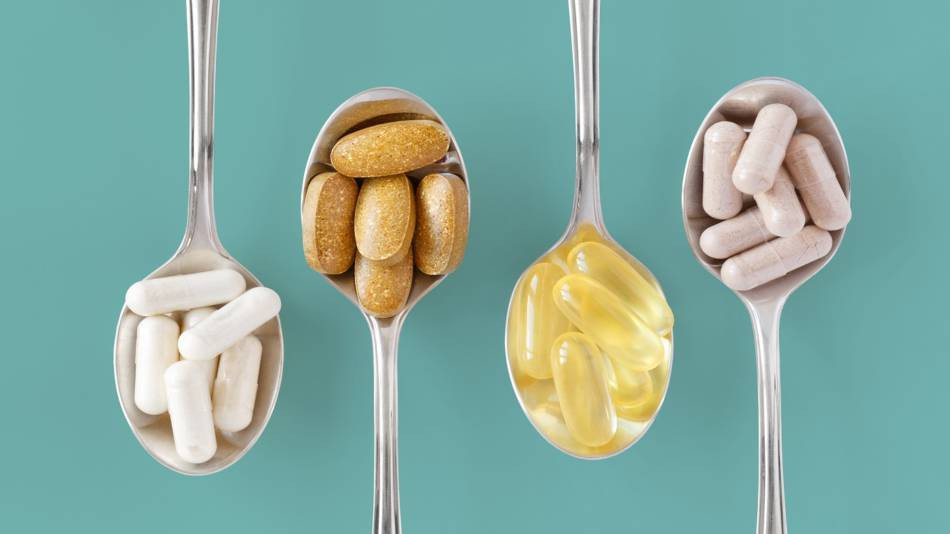Which vitamin and mineral supplements support the treatment of bone and joint diseases?
Osteoarthritis is increasingly common, affecting many people, severe cases limit mobility. So what nutrients help reduce pain and support treatment?
1. Why are bone and joint diseases becoming more common?
Osteoarthritis is a group of conditions that affect the bones, cartilage, muscles and other related organs in the body's musculoskeletal system. Common musculoskeletal diseases include: Arthritis, osteoarthritis, osteoporosis, rheumatoid arthritis...
In addition to increasing the risk of fractures, bone and joint diseases also cause symptoms including pain and mobility problems. Aging, genetics, hormonal changes, and inadequate diet are the main causes of the disease. In particular, modern lifestyles with unbalanced menus, lack of exercise, and stress contribute to the increase in bone and joint diseases.

When not treated or managed effectively, musculoskeletal diseases can negatively impact a person's health and quality of life, affecting bone strength and flexibility, thus leading to potential health complications.
Diagnosis and treatment of specific bone and joint diseases depend on the condition and are performed under the guidance of a specialist.
For example, in the case of osteoporosis, the goal is to prevent further bone loss and avoid fractures. Therefore, treatment may include nutritional advice, lifestyle modifications such as quitting smoking and engaging in more physical activity, taking steps to reduce the risk of falls to avoid fractures, and prescribing medications.
Therefore, if there are unusual symptoms or concerns about bone and joint health, patients should seek medical advice and care from a doctor or health professional.
2. Vitamins and minerals support the treatment of bone and joint diseases
To reduce the risk of osteoarthritis, it is important to maintain a healthy lifestyle, including eating a balanced diet, maintaining a healthy weight, and exercising regularly. Maintaining a balanced diet rich in vitamins and minerals can help reduce the risk of the disease and support the treatment process as well as reduce pain.
-Calcium and vitamin D: These are important components for strong bones. Calcium is the main mineral for healthy bones and the body needs enough vitamin D to help calcium absorb into the bones. Consuming enough vitamin D and calcium not only prevents osteoporosis and osteomalacia but also helps reduce pain by providing nutrients to strengthen bones.
The recommended calcium intake for normal adults is 700-1000mg per day, equivalent to two servings of calcium-rich foods, such as milk or calcium-rich foods. Adults can get enough calcium from food without supplementation. However, for osteoporosis patients, postmenopausal women and the elderly, 1200-1500mg per day is recommended because the intake through meals is insufficient and the absorption rate is low.

Calcium is found in dairy products such as yogurt, cheese, shellfish, and fish. Milk and dairy products contain calcium lactate, which helps in calcium absorption, so they should be consumed. However, if you cannot digest milk, you can replace it with soy milk or calcium supplements.
Foods rich in vitamin D include avocado, liver, egg yolks, and dried shiitake mushrooms. Additionally, vitamin D can be synthesized in the body through the skin when exposed to sunlight, or it can also be provided as a vitamin D supplement.
-Vitamin C: Vitamin C intake is involved in the synthesis of collagen fibers, the matrix of joints, helping to reduce inflammation and pain, and increase flexibility. However, consuming too much vitamin C through high-dose calcium supplements can cause kidney stones. Therefore, it is better to eat oranges and citrus fruits rich in vitamin C than to take vitamin C supplements.
-Vitamin B6, zinc, iron: If you have rheumatoid arthritis, you should supplement because vitamin B6 deficiency can occur during treatment. In addition, serum and synovial fluid of patients with rheumatoid arthritis have increased copper and decreased zinc. Therefore, providing zinc can help improve arthritis symptoms. Because of the high rate of iron deficiency, providing iron-rich foods also helps reduce pain.
-Omega-3 fatty acids: Bone pain starts from inflammation. Therefore, consuming foods rich in omega-3 fatty acids such as salmon, tuna, mackerel... has the effect of reducing inflammation. If the diet is deficient, it can be supplemented with omega-3 supplements. Turmeric is also a food with anti-inflammatory properties and helps reduce pain.
-Protein: Getting enough protein helps maintain muscle. Having muscles that hold bones strong can prevent bone and joint damage and prevent inflammation that causes pain.
-Fiber: Seaweed and other fiber-rich fruits and vegetables are good nutrients for the synovial fluid that surrounds cartilage. However, calcium absorbed through grains or unrefined fruits and vegetables can actually disrupt the calcium balance in the body, so eat in moderation rather than too much.
Finally, avoid caffeine, alcohol and smoking, these substances promote the excretion of calcium from the body and further increase pain./.

